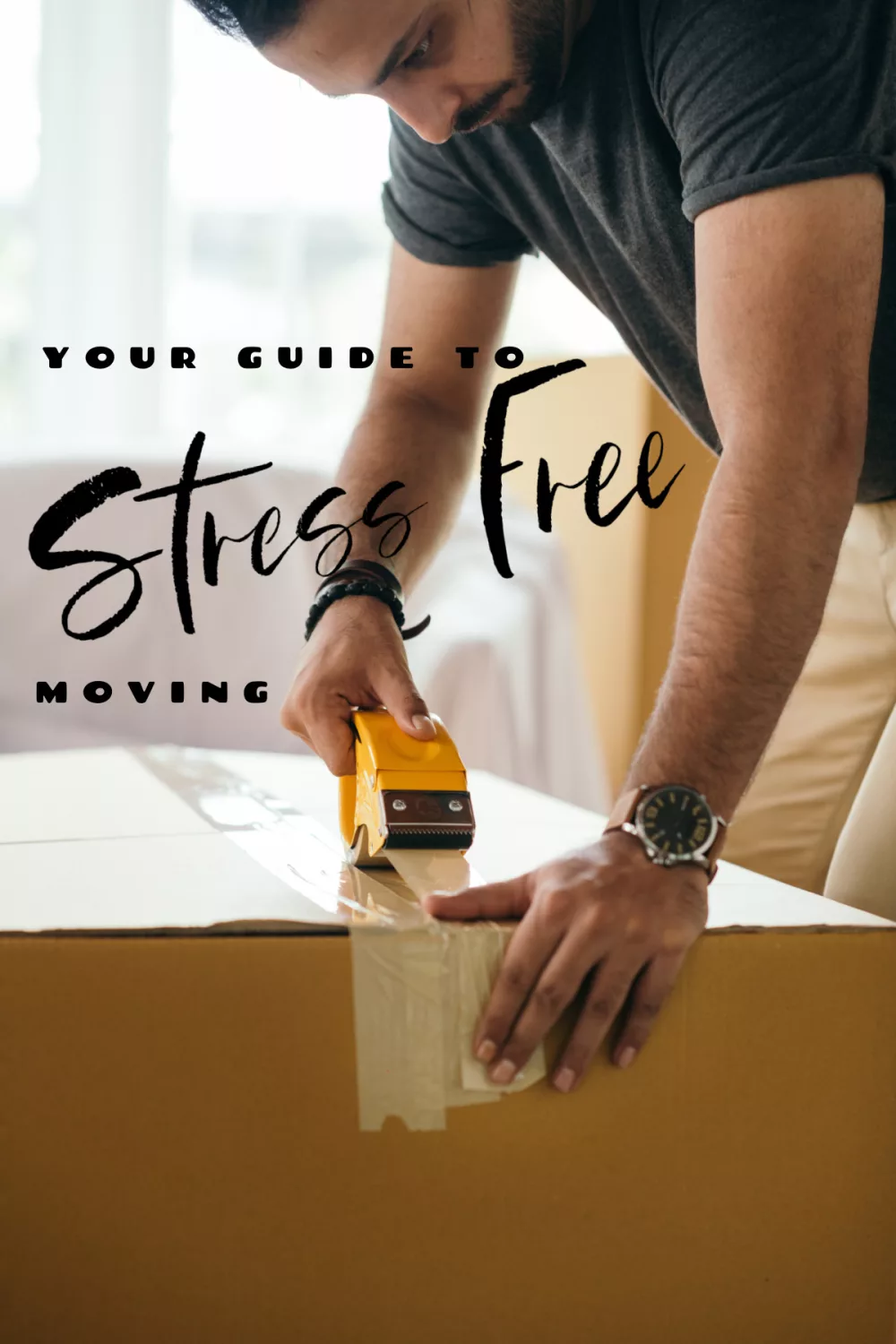So, you’re finally getting your first home? Here is a guide to stress free moving to help make the process easier! Maybe you’ve been living on your own for a while, but finally decided it was time to make the leap from renting into the world of home ownership. Maybe you’ve been living at home with your parents, slowly saving up until you had enough money to afford a down payment on your own home.

The Guide to Stress Free Moving
However you’re doing it, first-time home-buying can be both an incredibly exciting and stressful experience, especially if your jump into home ownership is taking you out of state and away from your friends, family, and town you’ve grown familiar with. Here are some tips to make the transition as stress-free as possible.
Getting You Financial Ducks in a Row
Before you start looking at homes or applying for loans, the most important thing to do is find a stable job wherever you’re planning to move to. This is the most important step because your income will decide your budget.
You won’t know what kind of mortgage payment you can afford until you have a clear understanding of your monthly income and expenses. To help you break down your income and build a budget, consider making a spreadsheet so you have a visual deconstruction of your spending.
Once you’ve found a job in your new location, it’s time to apply to lenders. Conventional loans are one of the most popular loan types among home buyers since they require less paperwork and are therefore approved faster than other loans. However, it is important to remember that conventional loans require a much higher credit score than other loan types do for approval.
If you already have an exceptional credit score, then you shouldn’t worry! In fact, the higher your credit score, the lower your interest will be on the loan, which is another benefit of this loan type.
Finding the Right Home
Once you’ve figured out your finances and know what your budget is, you can start searching for the perfect home. There are many factors to consider when looking through listings. You should think about your plans for the home.
Are you looking to buy your forever home—something that you and your future family can grow into as time passes—or are you just looking for something that suits your current needs and planning to trade in if there ever comes a time when you need more space? Your lifestyle and plans for the future will also likely have an impact on the location where you choose to buy your property. If you’re looking for a home to one day raise a family in, then you should do your research on the best school districts.
There are also ways to research individual neighborhoods to find information like crime rates and average income, that way you can ensure that you’re picking a safe neighborhood to raise your children in.
If you’re just trying to enjoy the moment instead of looking toward the future, then the factors that will most heavily influence the location of where you choose to buy property are more likely to be what different locations have to offer for nightlife or other attractions.
Moving in
The stress is far from over once you’ve found the perfect property. Packing your life into boxes and moving on to the next chapter can be a very emotional process, and can be incredibly taxing, especially if you’re doing it on your own. To keep yourself from feeling overwhelmed, it’s important that you give yourself plenty of time to get everything together. You should start packing up non-essentials at least a month before you move.
A great tip is to start with your closet. Pick the outfits that you’ll need until the time of your move and pack away everything else. The time leading up to your move should also be used to make sure you have all of the essential items that you’ll need in your new home. Most people will overlook the simple things, for example, kitchen gadgets like can openers or vegetable peelers. To help you remember all of these little things, try making a checklist of all the little things.
In addition to the sheer stress of getting everything packed up, moving also presents the possibility that your belongings will be damaged while being packed into the moving truck or in transit to your new home. The likelihood of this happening is greatly increased if you decide to hire movers to help you with your transition.
While the thought of having a few extra hands is enticing, keep in mind that movers don’t care about preserving your belongings as much as you do, and often cannot be held responsible for any damages to property. The best thing you can do to protect your belongings is to take charge of your move.





Leave a Reply